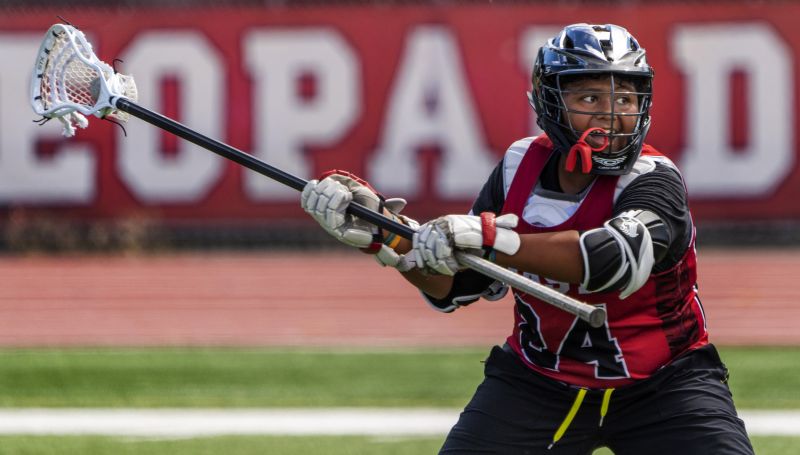Getting Recruited to Play College Lacrosse The Ultimate GuideGetting Recruited to Play College Lacrosse The Ultimate Guide
Develop the Skills College Coaches Want
To get recruited for college lacrosse, you need to demonstrate that you have the skills coaches are looking for. Lacrosse is a fast-paced, high intensity sport that requires exceptional hand-eye coordination, speed, agility, endurance and technical ability. Coaches will assess your stick skills like cradling, scooping ground balls, passing, catching, shooting and dodging. You need to be able to execute these fundamental skills at a high level, even under pressure. Excelling in drills during tryouts will showcase your abilities. Ball control and protective stick checks are essential. Accuracy in shooting and passing is key. Goalies need quick reaction time, courage, focus and flexibility. Developing your athleticism through strength training, plyometrics and conditioning will give you an edge. Improving skills like speed, power, balance and coordination translates onto the field. Studying game film to analyze positioning, decision making and lacrosse IQ sets top recruits apart. Training with private coaches and attending prospect camps to refine your technique is highly recommended. Being a versatile player with solid fundamentals in every area – dodging, shooting, passing, clearing, defending – makes you a coveted recruit. Mastering the essential lacrosse skills through diligent practice and coaching gives you the best shot at getting noticed and recruited.
Attend Prospect and ID Camps
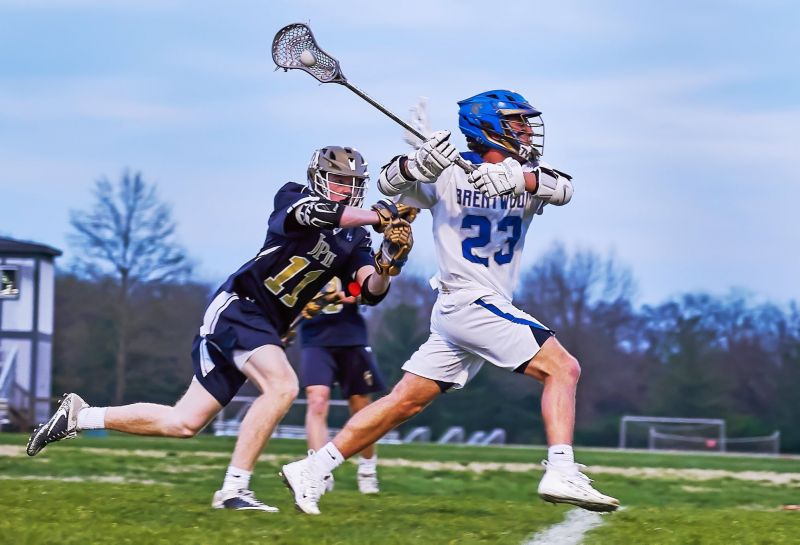
Attending prospect camps and identification camps is one of the most effective ways to get exposure and get recruited to play college lacrosse. These specialized camps run by college coaches allow you to showcase your skills directly to the coaches and programs you want to play for. The key is to choose wisely which camps to attend based on the level of college lacrosse you aspire to. Top prospects will want to target elite showcases like Blue Chip 225, Maverik Showtime and National 175 which attract coaches from DI and top DIII programs. Focus on camps held by the colleges you are most interested in. Do research to find ones that fit your recruiting goals. The best players from around the country will attend these camps to compete at a high level. It’s your chance to measure yourself against the top talent. Coaches closely evaluate prospects in drills, scrimmages and games during the camp. They take notes on players that impress them to follow up later. You can make a highlight reel from camp footage to share online. The coaches also give instruction on lacrosse skills and strategy to help elevate your game. Attending multiple camps each year as an underclassman gives you added exposure. But as a junior and senior, be more selective choosing camps to avoid oversaturation. While the play is important, camps also allow face time with coaches to make connections. You can speak with them to express interest in their program. Follow up after camps with emails to cement the relationship. The friends you make become part of your recruiting network. Prospect camps build exposure, so when coaches watch your high school and club games they recognize you. The investment in registration fees and travel is well worth it for the recruiting edge camps provide.
Connect with Coaches at Showcases and Tournaments
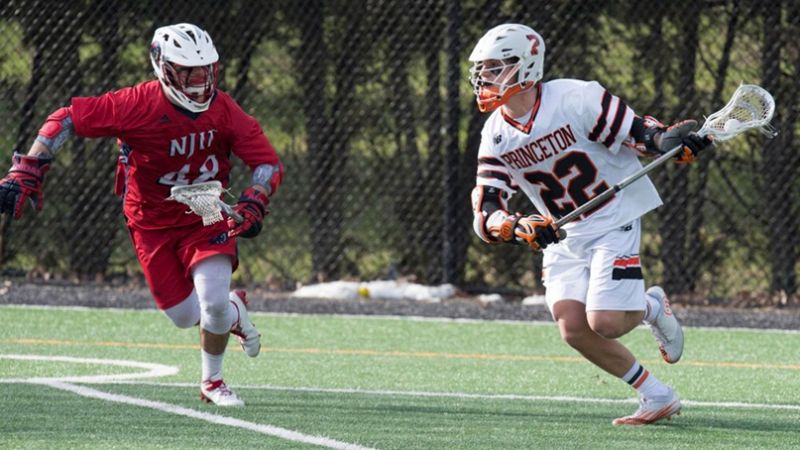
Making connections with college coaches at showcases and tournaments is a prime opportunity to get recruited to play lacrosse. These competitive events bring together the top club and high school teams in front of crowds of college coaches. By playing well at premier showcases like Maverik Showtime, Blue Chip 225 and Adrenaline Black Card, you gain exposure to recruiters from across the country. The key is leveraging that visibility into meaningful interactions with the coaches there. Being proactive about introducing yourself makes an impression. Tell them about your academic and athletic accomplishments and interest in their school. Get their contact info so you can follow up later by email and phone. Building rapport over time is invaluable. Coaches also pay attention to how you conduct yourself during games. Hustle, sportsmanship and leadership stand out. Your skills need to rise to the level of competition. Positioning yourself to make plays shows lacrosse IQ. Combining athleticism with fundamentals will earn notice. Colleges often have scout days at tournaments to evaluate prospects in action. Quickly make an impact on the field to catch their eye. Between games, find coaches in the stands to check-in. Ask for feedback on your performance. Discuss their recruiting needs and timelines. Understanding their priorities helps you tailor your message. Follow coaches on social media and tag them on your highlights. Court the programs you’re serious about. Utilizing each recruiting event to further relationships with coaches is key. A strong showing can fast track you up their wish list. Building rapport over time and staying on their radar at showcases is invaluable. The personal connections made will give you an advantage when coaches fill out their recruiting class.
Create a Highlight Reel to Share with Coaches
Ball control and protective stick checks are critical components of a player’s skill set. How can players improve their accuracy in shooting and passing? Regular practice with targets and drills focusing on precision can significantly enhance these abilities.
Position-Specific Skills
Different positions on the lacrosse field require unique skill sets. Goalies, for instance, need quick reaction times, courage, focus, and flexibility. Field players should strive to be versatile, excelling in dodging, shooting, passing, clearing, and defending.
Developing athleticism through strength training, plyometrics, and conditioning can give players an edge. How does improved athleticism translate to on-field performance? Enhanced speed, power, balance, and coordination directly impact a player’s effectiveness during games.
Leveraging Prospect and ID Camps for Recruitment
Prospect and identification camps offer invaluable opportunities for aspiring college lacrosse players. Why are these camps so crucial in the recruitment process?

- Direct exposure to college coaches
- Opportunity to showcase skills in a competitive environment
- Chance to receive instruction from college-level coaches
- Networking with other top prospects
Choosing the right camps is essential. How should players select which camps to attend? Consider targeting camps run by colleges you’re interested in or elite showcases that attract coaches from top programs. Research is key to finding camps that align with your recruiting goals.
For top prospects, elite showcases like Blue Chip 225, Maverik Showtime, and National 175 can be game-changers. These events draw coaches from Division I and top Division III programs, providing unparalleled exposure.
Maximizing Camp Experiences
To make the most of prospect camps, players should focus on excelling in drills, scrimmages, and games. Coaches closely evaluate prospects during these activities, taking notes on standout performers.
Creating a highlight reel from camp footage can be an effective tool for sharing your skills online. How can players use camp experiences to build relationships with coaches? Take advantage of face time with coaches to express interest in their programs and follow up with emails after the camp.

Building Connections at Showcases and Tournaments
Showcases and tournaments are prime opportunities for players to get noticed by college coaches. These events bring together top club and high school teams, creating a competitive environment that attracts recruiters from across the country.
How can players make meaningful connections with coaches at these events?
- Be proactive in introducing yourself to coaches
- Highlight your academic and athletic accomplishments
- Express genuine interest in their program
- Obtain contact information for follow-up communication
On-field performance is crucial during showcases and tournaments. Coaches pay close attention to how players conduct themselves during games, looking for qualities such as hustle, sportsmanship, and leadership.
Leveraging Scout Days
Many colleges organize scout days at tournaments to evaluate prospects in action. How can players make a quick impact during these events? Focus on positioning yourself to make plays, demonstrating your lacrosse IQ, and combining athleticism with solid fundamentals.

Between games, seek out coaches in the stands to check in and ask for feedback on your performance. This shows initiative and provides an opportunity to discuss their recruiting needs and timelines.
Creating a Compelling Highlight Video
A well-crafted highlight video can be a powerful tool in the lacrosse recruitment process. Why is a strong highlight video so important? It provides coaches with a concise overview of your skills and playing style, potentially sparking their interest in recruiting you.
What elements should be included in an effective lacrosse highlight video?
- A brief introduction with your name, graduation year, and key stats
- High-quality footage showcasing your best plays
- A mix of offensive and defensive highlights
- Demonstrations of lacrosse IQ and field awareness
- Examples of leadership and teamwork
Keep your highlight video concise, typically around 3-5 minutes long. Start with your most impressive plays to grab the coach’s attention immediately. How can you ensure your video stands out? Include a variety of skills and game situations to demonstrate your versatility as a player.

Distributing Your Highlight Video
Once you’ve created your highlight video, it’s crucial to get it in front of college coaches. How can you effectively distribute your video?
- Upload it to recruiting platforms like NCSA or BeRecruited
- Share it on your social media profiles, tagging relevant coaches and programs
- Include a link to your video in emails to coaches
- Consider creating a personal website to host your video and other recruiting materials
Remember to update your highlight video regularly with new footage as you progress and improve. This keeps coaches informed of your development and maintains their interest in your potential as a recruit.
The Impact of Academic Performance on Lacrosse Recruitment
While athletic ability is crucial in lacrosse recruitment, academic performance plays a significant role as well. How does academic achievement influence the recruitment process?
College coaches look for well-rounded student-athletes who can excel both on the field and in the classroom. Strong academic credentials can set you apart from other recruits and open doors to more prestigious programs.

Meeting NCAA Eligibility Requirements
To play college lacrosse, athletes must meet specific NCAA eligibility requirements. What are these requirements?
- Graduate from high school
- Complete a certain number of core courses
- Earn a minimum GPA in core courses
- Achieve a qualifying score on the SAT or ACT
The exact requirements vary depending on the division (I, II, or III) and can change, so it’s essential to stay informed about the current standards. How can players ensure they meet these requirements? Work closely with your high school guidance counselor to plan your coursework and track your progress toward NCAA eligibility.
Leveraging Academics for Recruitment
Strong academic performance can enhance your appeal to college coaches in several ways:
- Qualifying for academic scholarships, reducing the need for athletic scholarship money
- Demonstrating time management and discipline, valuable traits for student-athletes
- Increasing your options, as some top academic institutions have strict admission standards
- Showing potential for success beyond athletics, a factor coaches consider for long-term program success
How can you highlight your academic achievements during the recruitment process? Include your GPA, test scores, and any academic honors or advanced coursework in your communications with coaches. This information can be just as impressive as your athletic accomplishments.

The Role of Club Teams in Lacrosse Recruitment
Club lacrosse teams play a crucial role in the college recruitment process. How do club teams benefit aspiring college lacrosse players?
Club teams often provide exposure to a wider range of college coaches than high school teams alone. They participate in prestigious tournaments and showcases that attract recruiters from across the country.
Selecting the Right Club Team
Choosing the right club team can significantly impact your recruitment prospects. What factors should you consider when selecting a club team?
- The team’s reputation and track record of college placements
- The quality of coaching and player development
- The team’s schedule of tournaments and showcases
- The level of competition within the team and in their league
How can playing for a top club team enhance your recruitment chances? Elite club teams often have established relationships with college programs, providing players with valuable connections and insights into the recruitment process.

Balancing Club and High School Lacrosse
While club lacrosse offers significant recruitment benefits, it’s important to maintain a balance with high school lacrosse. How can players effectively manage both?
- Communicate openly with both club and high school coaches about schedules and commitments
- Prioritize academic performance alongside athletic commitments
- Use the different seasons to focus on skill development and competitive play
- Leverage the unique opportunities each setting provides for leadership and growth
Remember that college coaches often value loyalty and commitment to high school programs, so don’t neglect these opportunities in favor of club play.
Effective Communication with College Coaches
Clear and professional communication with college coaches is essential in the lacrosse recruitment process. How can players effectively reach out to and maintain contact with coaches?
Start by researching the programs you’re interested in and tailoring your messages to each coach. Personalization shows genuine interest and increases the likelihood of a response.

Crafting Impactful Emails
Email remains a primary mode of communication in the recruitment process. What elements should be included in an effective email to a college coach?
- A clear, attention-grabbing subject line
- A brief introduction including your name, graduation year, and position
- Key athletic achievements and statistics
- Academic information, including GPA and test scores
- Upcoming game or tournament schedule
- Link to your highlight video
- Expressions of specific interest in the coach’s program
How often should you follow up with coaches? While persistence is important, avoid overwhelming coaches with too frequent communications. A good rule of thumb is to follow up every few weeks if you haven’t received a response.
Navigating Phone and In-Person Interactions
As the recruitment process progresses, you may have opportunities for phone calls or in-person meetings with coaches. How can you prepare for these interactions?
- Research the coach and program thoroughly
- Prepare thoughtful questions about the team, school, and recruitment process
- Practice articulating your goals and what you can bring to the program
- Be ready to discuss your academic and athletic achievements
- Show enthusiasm and gratitude for the opportunity to speak with the coach
Remember that these interactions are also opportunities for you to evaluate whether the program is a good fit for your goals and personality. Don’t be afraid to ask questions that will help you make an informed decision about your future.

By focusing on skill development, leveraging camps and showcases, creating compelling highlight videos, maintaining strong academics, participating in club teams, and communicating effectively with coaches, aspiring college lacrosse players can significantly enhance their chances of successful recruitment. The process requires dedication, strategic planning, and persistence, but the reward of playing at the collegiate level makes the effort worthwhile.
Develop the Skills College Coaches Want
To get recruited for college lacrosse, you need to demonstrate that you have the skills coaches are looking for. Lacrosse is a fast-paced, high intensity sport that requires exceptional hand-eye coordination, speed, agility, endurance and technical ability. Coaches will assess your stick skills like cradling, scooping ground balls, passing, catching, shooting and dodging. You need to be able to execute these fundamental skills at a high level, even under pressure. Excelling in drills during tryouts will showcase your abilities. Ball control and protective stick checks are essential. Accuracy in shooting and passing is key. Goalies need quick reaction time, courage, focus and flexibility. Developing your athleticism through strength training, plyometrics and conditioning will give you an edge. Improving skills like speed, power, balance and coordination translates onto the field. Studying game film to analyze positioning, decision making and lacrosse IQ sets top recruits apart. Training with private coaches and attending prospect camps to refine your technique is highly recommended. Being a versatile player with solid fundamentals in every area – dodging, shooting, passing, clearing, defending – makes you a coveted recruit. Mastering the essential lacrosse skills through diligent practice and coaching gives you the best shot at getting noticed and recruited.
Attend Prospect and ID Camps

Attending prospect camps and identification camps is one of the most effective ways to get exposure and get recruited to play college lacrosse. These specialized camps run by college coaches allow you to showcase your skills directly to the coaches and programs you want to play for. The key is to choose wisely which camps to attend based on the level of college lacrosse you aspire to. Top prospects will want to target elite showcases like Blue Chip 225, Maverik Showtime and National 175 which attract coaches from DI and top DIII programs. Focus on camps held by the colleges you are most interested in. Do research to find ones that fit your recruiting goals. The best players from around the country will attend these camps to compete at a high level. It’s your chance to measure yourself against the top talent. Coaches closely evaluate prospects in drills, scrimmages and games during the camp. They take notes on players that impress them to follow up later. You can make a highlight reel from camp footage to share online. The coaches also give instruction on lacrosse skills and strategy to help elevate your game. Attending multiple camps each year as an underclassman gives you added exposure. But as a junior and senior, be more selective choosing camps to avoid oversaturation. While the play is important, camps also allow face time with coaches to make connections. You can speak with them to express interest in their program. Follow up after camps with emails to cement the relationship. The friends you make become part of your recruiting network. Prospect camps build exposure, so when coaches watch your high school and club games they recognize you. The investment in registration fees and travel is well worth it for the recruiting edge camps provide.
Connect with Coaches at Showcases and Tournaments

Making connections with college coaches at showcases and tournaments is a prime opportunity to get recruited to play lacrosse. These competitive events bring together the top club and high school teams in front of crowds of college coaches. By playing well at premier showcases like Maverik Showtime, Blue Chip 225 and Adrenaline Black Card, you gain exposure to recruiters from across the country. The key is leveraging that visibility into meaningful interactions with the coaches there. Being proactive about introducing yourself makes an impression. Tell them about your academic and athletic accomplishments and interest in their school. Get their contact info so you can follow up later by email and phone. Building rapport over time is invaluable. Coaches also pay attention to how you conduct yourself during games. Hustle, sportsmanship and leadership stand out. Your skills need to rise to the level of competition. Positioning yourself to make plays shows lacrosse IQ. Combining athleticism with fundamentals will earn notice. Colleges often have scout days at tournaments to evaluate prospects in action. Quickly make an impact on the field to catch their eye. Between games, find coaches in the stands to check-in. Ask for feedback on your performance. Discuss their recruiting needs and timelines. Understanding their priorities helps you tailor your message. Follow coaches on social media and tag them on your highlights. Court the programs you’re serious about. Utilizing each recruiting event to further relationships with coaches is key. A strong showing can fast track you up their wish list. Building rapport over time and staying on their radar at showcases is invaluable. The personal connections made will give you an advantage when coaches fill out their recruiting class.
Create a Highlight Reel to Share with Coaches
Putting together a quality highlight video is essential for getting recruited to play college lacrosse. Coaches rely heavily on film to evaluate prospects. Your tape needs to impress them even before you meet. The key is selecting your absolute best footage that showcases your skills and athleticism. Include game film that spotlights your strengths. For attackers that may mean dodging, shooting, passing and IQ. Middies should demonstrate transition speed, ground balls, face-offs and endurance. Defenders want video of lockdown cover skills, big checks, caused turnovers and takeaways. Tailor clips to the position you hope to play. Your best goals, saves, assists, checks and outlet passes should be featured. Complement game footage with drill clips highlighting technique. You want around 5-10 minutes of exciting plays edited tightly together. Don’t overload coaches with 20 minutes of mediocre film. The video should get them amped to keep watching you. Enlist someone experienced at lacrosse and video editing to produce the highest quality reel possible. Add music, titles and motion graphics that sync with the highlights. Post the video privately online and provide coaches a Vimeo or YouTube link. Bring your reel on a tablet or phone to showcase at recruiting events. When emailing coaches introduce yourself with a quick backstory and major accomplishments. Offer to send them your highlight film which demonstrates the skills they value. Then follow up to get their feedback. Ask what other facets of your game they want to see. An engaging, professional lacrosse highlight tape that paints you in the best possible light will go a long way in boosting your stock with college coaches.
Develop the Skills College Coaches Want
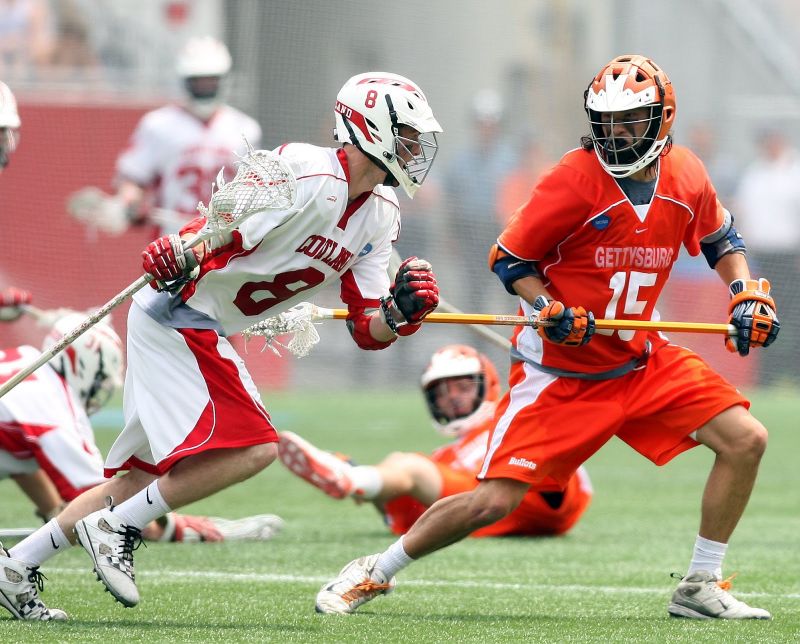
To get recruited for college lacrosse, you need to demonstrate that you have the skills coaches are looking for. Lacrosse is a fast-paced, high intensity sport that requires exceptional hand-eye coordination, speed, agility, endurance and technical ability. Coaches will assess your stick skills like cradling, scooping ground balls, passing, catching, shooting and dodging. You need to be able to execute these fundamental skills at a high level, even under pressure. Excelling in drills during tryouts will showcase your abilities. Ball control and protective stick checks are essential. Accuracy in shooting and passing is key. Goalies need quick reaction time, courage, focus and flexibility. Developing your athleticism through strength training, plyometrics and conditioning will give you an edge. Improving skills like speed, power, balance and coordination translates onto the field. Studying game film to analyze positioning, decision making and lacrosse IQ sets top recruits apart. Training with private coaches and attending prospect camps to refine your technique is highly recommended. Being a versatile player with solid fundamentals in every area – dodging, shooting, passing, clearing, defending – makes you a coveted recruit. Mastering the essential lacrosse skills through diligent practice and coaching gives you the best shot at getting noticed and recruited. You want coaches envisioning how you can make an immediate impact once you get on campus. Dedicate yourself to perfecting your lacrosse skills and athletic attributes most valued at the next level.
Get Fit and Improve Athleticism

Elevating your athleticism and physical fitness is vital to getting recruited for college lacrosse. Coaches want players with the speed, strength, agility, endurance and explosive power to thrive in fast-paced, high intensity games. You need to demonstrates these athletic attributes in your highlight films and at prospect camps. Committing to a sports performance training program tailored to lacrosse is highly recommended. Work on your acceleration and top-end speed with targeted sprinting and plyometric drills. Develop power in your legs and core for shooting, checking and quick changes of direction. Improve explosiveness off the line with resisted starts and box jump sets. Build strength across your upper body to improve stick skills and durability. Focus on your lacrosse-specific fitness like lateral quickness, body control and hand-eye coordination. Work closely with your strength coach to identify areas for growth and customize training cycles to your needs. Proper recovery with rest, nutrition and hydration allows training adaptations to occur. Combining on-field stickwork with weight room and agility sessions maximizes development. Test and track metrics like your 40-yard dash, vertical leap, 5-10-5 shuttle, 3-cone drill and bench press to quantify progress over time. Peaking athletically as college recruiting intensifies gives you an edge. Prospective student-athletes that demonstrate college-ready fitness catch coach’s eyes. The increased speed, power, agility and endurance transfers directly onto the field. Bring test results and measurable gains to showcase your dedication. Make athletic performance improvement a primary focus both in and out of season. Becoming a stronger, faster lacrosse athlete makes you a prime target for college programs seeking impact performers.
Maintain Good Grades and Test Scores
To get recruited for college lacrosse, you need to have the academic credentials coaches require. Maintaining strong grades in a rigorous course load is essential. College programs want student-athletes that can handle the demands of balancing academics and athletics. Taking honors, AP and IB courses when possible demonstrates your work ethic and ability to succeed in a challenging curriculum. Earning at least a 3.0 unweighted GPA should be your goal. Grades in key subjects like math, science, English and history are weighed heavily. Scoring well on standardized tests like the SAT and ACT provides quantifiable academic evidence. Aim for benchmark scores of around 1100 on the SAT or 22 on the ACT. Retaking tests to increase your scores shows your motivation. Reviewing sample questions and taking practice exams helps optimize prep time. Be sure to have an academic course plan mapped out year-by-year with your counselor. Meeting all NCAA eligibility requirements for core courses and GPA is mandatory. Research the typical academic profiles at colleges you’re interested in to understand expectations. Coaches will assess your transcripts, test scores, teachers’ recommendations and your academic honors. Putting in the hard work in the classroom not only helps you get into college but shows commitment and work ethic prized in recruits. Making academics a priority demonstrates you have the ability to thrive as both a student and an athlete at the next level.
Start Emailing and Calling Coaches Early

Initiating consistent communication with college coaches is pivotal for getting recruited to play lacrosse. You need to be proactive about regularly contacting coaches at your target programs. Start building these relationships early in high school before your junior and senior recruiting years. Email coaches personalized introductions with your academic, athletic and extracurricular accomplishments. Provide your contact info, graduation year, position(s), height/weight and which level of college lacrosse interests you. Attach a short video of lacrosse highlights or provide links to view your footage online. Ask if they have time for a brief phone call to further discuss their program and recruiting needs. Be diligent following up if you don’t immediately hear back. Call coaches to introduce yourself, pitch your skill set and express interest. With underclassmen, coaches may respond minimally but your name is on their radar. Leverage events like camps and showcases to connect face-to-face with coaches. Then cement bonds through consistent calls and emails after meeting. Tailor your message to each coach’s needs and recruiting timeline based on your research. By junior year, communicate weekly with top choice programs highlighting latest accomplishments. Senior year requires more urgency calling coaches to determine their needs and interest level. Don’t get discouraged by coaches slow to respond; persistence and patience pay off. Building relationships over time makes coaches comfortable bringing you in. Getting on coaches’ radar early and regularly is essential to become a top recruit.
Fill Out NCAA Recruitment Forms
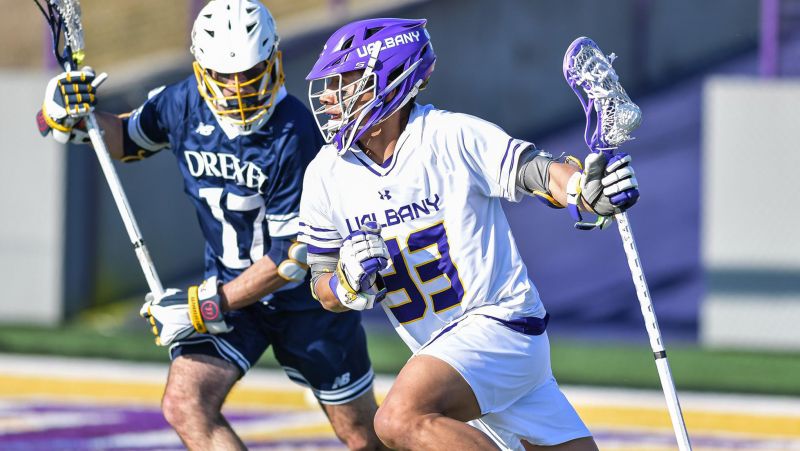
Completing NCAA recruitment paperwork is a must for getting noticed by college lacrosse programs. The NCAA Eligibility Center handles certification for Divisions I and II. Set up your account by freshmen year listing all high school coursework planned. This helps coaches evaluate if you’re on track academically. After junior year, request your official transcript be sent to the Eligibility Center to review your core course progress and amateur status. Ensure you meet GPA and test score requirements. Division III schools don’t require the Eligibility Center but you still need to qualify academically. The NCAA also provides two main recruiting forms. There is the official NCAA Interest Form which allows D1 and D2 schools to contact you. Fill this out by early junior year listing your academic and athletic info. Coaches can request your completed form online. The NCAA College-Bound Student-Athlete Guide is another key document. This gives the NCAA, conferences, schools and eligibility center consent to use your info for recruiting. Submitting both forms maximizes college coaches’ access to your athletic and academic profile. This gets you on their recruiting boards and radar. Being proactive about NCAA paperwork shows coaches your seriousness and knowledge of the process. It also facilitates communication so they can reach out early according to NCAA guidelines. When emailing coaches, mention you completed your official forms through the Eligibility Center. This reassures them you are cleared for recruitment. Staying on top of NCAA recruiting documents will maximize your exposure to find the right college fit.
Promote Yourself on Lacrosse Recruiting Websites
Utilizing lacrosse recruiting websites is an excellent way to promote yourself and get noticed by college coaches. Top sites like NCSA Sports, LaxRecords and LaxNumbers enable you to create detailed athlete profiles searchable by college coaches. This allows you to proactively market yourself to programs best matched with your academic and athletic credentials. Provide your contact info, graduation year, height/weight, stats, honors, desired level of play, and highlight video links. Upload quality action photos of yourself on the field. Share your most recent lacrosse stats and measurable testing results which quantify your talents. List key lacrosse camps attended and prospect events coming up where coaches can evaluate you live. Feature your academic qualifications, GPAs, test scores, and NCAA eligibility status. This provides coaches with a comprehensive snapshot of you as a student-athlete target for their program. Ensure your profile is 100% complete with all pertinent recruiting information they seek. Actively update it throughout high school as you achieve new accomplishments. Enhanced profiles allow you to message coaches directly. Be proactive reaching out to introduce yourself and provide your player link. Follow up periodically with coaches who have viewed your profile to gauge their interest. Link to your profile in emails and recruiting packets sent to college coaches. Getting your name and abilities in front of coaches early improves your chances of being recruited. Lacrosse recruiting sites expand your visibility to make connections.
Ask Coaches What They Are Looking For In Recruits

One of the best ways to boost your chances of getting recruited for college lacrosse is asking coaches directly what they seek in prospects for their program. Every coach has particular attributes and abilities they prioritize based on their team’s needs and playing style. Connect with coaches at recruiting showcases, tournaments, camps and on visits to inquire about their ideal recruit profile. Ask them to elaborate on the key traits and skills they value most. Listen closely to understand their athletic attributes like speed, strength, endurance and lacrosse IQ. Take note of specific position skills and areas of versatility mentioned. Ask about academic factors they look for like standardized test scores, GPA requirements and rigorous course loads. Inquire about character traits they want in recruits like work ethic, leadership, coachability and competitiveness. Discuss what sets apart prospects who thrive in their program’s environment. Show your initiative by asking for suggestions to develop in areas they highlight. Then demonstrate you are taking those steps when connecting with coaches moving forward. Ask for clarity on their overall recruiting priorities and timeline. Knowing exactly what coaches seek in their recruits helps you tailor your preparation and communication strategy. You can showcase how you match their wish list through your play, training regimen and academics. Becoming a recruit that checks all their boxes makes you a more enticing prospect. Doing your due diligence shows your strong interest in their program. Asking coaches what they want sets you up for success getting recruited.
Build Relationships with College Coaches Over Time

Developing long-term relationships with college coaches is essential to get recruited to play lacrosse. Making meaningful connections cannot be rushed. Find ways to put yourself on coaches’ radar early like attending their camps or requesting questionnaires. Introduce yourself explaining your academic and athletic accomplishments and interest in their school. Ask questions to show your engagement. Follow up any conversations by getting their contact info and adding them on social media. Look for opportunities to connect again at tournaments, showcases and prospect days where they will evaluate you. Meet briefly after games to recap your performance and get feedback. Discuss their timeline for recruiting your graduating class. Send coaches your highlight video when you update it. Follow up consistently with calls and emails recapping new achievements. Maintain communication but avoid pestering coaches. Share significant updates like college visits, standardized test scores, season statistics and ranking for All-State/Conference honors. Time your increased outreach strategically leading up to critical junior and senior recruiting periods. Always represent yourself with class and sportsmanship which reflects highly on you. Connect with coaches on personal and professional happenings beyond lacrosse to strengthen bonds. Demonstrate passion for their school and program. Having cultivated trust and familiarity over the years, coaches gain confidence to make you an offer. Sincere relationships built gradually on mutual interest and respect are more likely to result in a recruiting commitment. With patience and perseverance, you can make lasting connections that pay off.
Determine Which Level of NCAA Program is the Best Fit
An important factor in getting recruited for college lacrosse is determining which level of NCAA program will be the right fit and provide the experience you want. There are over 700 college lacrosse teams across Divisions I, II and III to choose from. The top D1 schools attract elite talent but can be extremely challenging to make the roster as a walk-on. These rigorous programs are ideal for the most driven prospects who thrive under pressure and want to test themselves against premier competition. Make sure you are willing to commit to extensive training, conditioning, film study and travel required at this level. Division II offers strong competitive balance with a partial athletic scholarship model. Academic requirements for athletes are higher at D2 schools. This level is great for talented prospects also focused on their studies. Division III programs cannot offer athletic scholarships but provide an emphasis on balance between lacrosse and academics. The competition is still robust and rosters more achievable for many to make. Think about the academics, athletics, social dynamics and location you prioritize. Research multiple schools across NCAA divisions that align with your priorities as a student-athlete. Set your sights on a short list of reach, target and safety options at each level. Being open to various tiers gives you the best chance to find the optimal college lacrosse program fit.
Be Persistent and Follow Up with Coaches Regularly
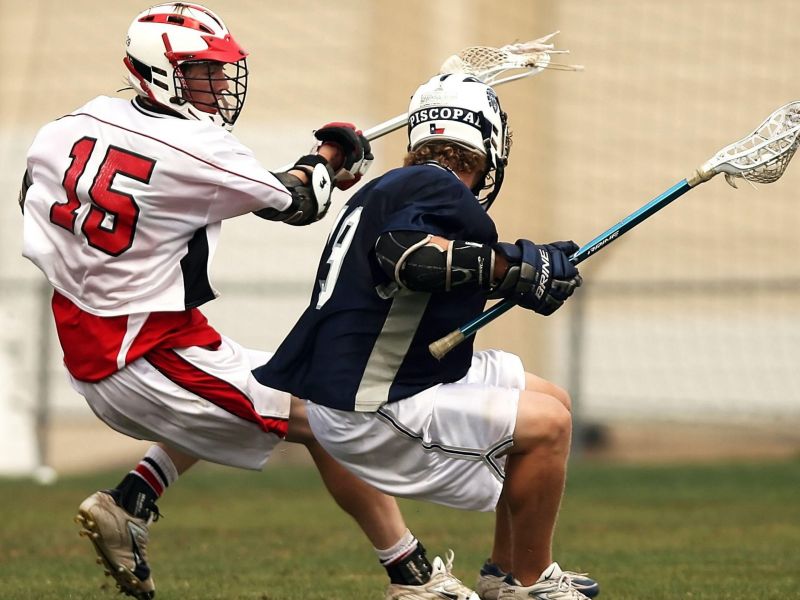
Persistence is key when reaching out to college lacrosse coaches in order to get recruited. You need to be diligent following up with coaches on an ongoing basis to stay at the front of their minds. Don’t be discouraged if coaches don’t respond right away, as their busy schedules mean recruiting communications can be slow. Keep messaging and leaving voicemails on a regular cadence like bi-weekly or monthly. Send personalized emails recapping new accomplishments like stats, awards, camp performances and academic achievements. Update coaches on your senior season progress and interest in their program. Call to see if they need any additional info like updated transcripts, test scores or video. Look for new conversation hooks by researching their team news and latest commits. Ask thoughtful questions that show your engagement and initiative. Follow up any in-person connections right after events while you are still fresh in their mind. Leverage your support network too, having a coach or parent reach out on your behalf to vouch for you. Through repeated meaningful touches over time, you remain on the coach’s radar. Don’t flood their inbox, but consistent visibility will pay off. When you do connect live, ask about ideal next steps you can take or info the coach needs from you. The key is demonstrating your genuine, ongoing interest in their program. Staying persistent and always following up will set you apart in a coach’s mind when decision time comes.
